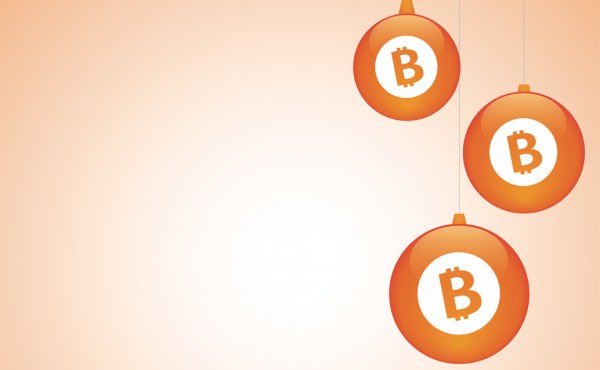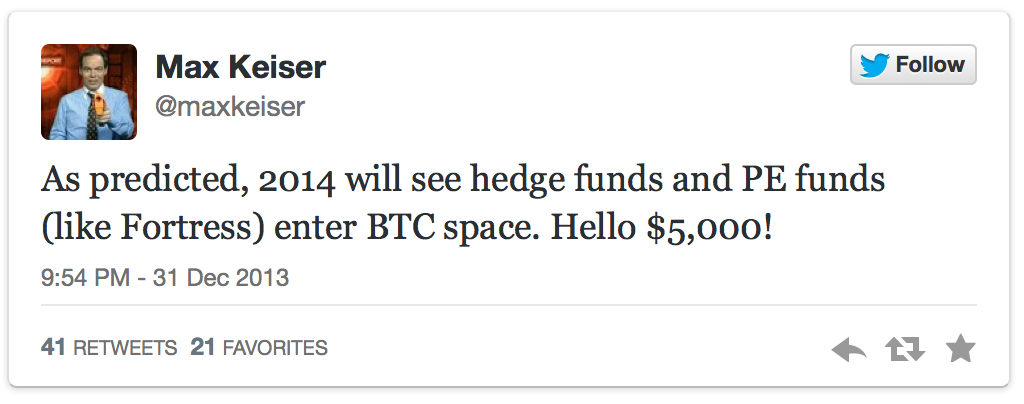What is a Bitcoin address and how do you sign it?
message because it was signed with their private key and you match it to their public key. When sending bitcoins the signed message is a portion of the bitcoin transaction and you do not explicitly see the message, it is just part of the transaction. This lets you validate the ownership of the address. The transaction (the transfer of value) was signed with the owner’s private key and you check that it’s valid using their public key.
public-private key pairs is that everyone can know the public key and the owner of the private key can prove that he is the owner of the message sent with the associated public key. For more information on PKI (Public Key Infrastructure) upon which much of bitcoin’s security is based see Mike Hearn’s (a core bitcoin developer) great description of many issues in “Why you think the PKI sucks…but can’t do any better“.
thrilled to read this, you have an overwhelming urge to send me some coins. You would open up your Bitcoin wallet, enter my address as the address to send bitcoins to; click send; and I would happily receive some bitcoins.
Open your free digital wallet here to store your cryptocurrencies in a safe place.

Is it too late to get Involved in Bitcoin?
(CoinDesk) So, you’ve only just learned about bitcoin, you’ve seen that people have become millionaires through investing in it. Your question is: “Can I still do the same, or has the bitcoin boat sailed?” Unfortunately there’s no simple answer to this. Can you still make millions from bitcoin? Possibly. Has the bitcoin boat sailed? Certainly not. Bitcoin,
and digital currency as a concept, is still very young. Created just five years ago, it’s still trying to find its feet and its price is suffering rather wild volatility. On top of this, recent company failures have left a lot of bitcoiners out of pocket. That said, there are plenty of people who have made a lot of money from
bitcoin, having invested in the early days and watched the price rocket since then. Those who invested two years ago, when the price was $5 a pop, have seen their investment increase a sickening 9,560% to $483 per bitcoin (at the time of writing). In order to enjoy the same percentage return over the next two years, the price of bitcoin would
have to increase from $483 to around $46,500. Sounds ridiculous, right? Actually, some people don’t think it’s that far fetched at all.
Bullish bitcoiners
A number of extremely bullish bitcoin price predictions have been voiced over the past year by some pretty notable commentators.
Ex-Facebook executive Chamath Palihapitiya kicked things off in May last year, writing in a piece for Bloomberg stating that each bitcoin could go on to be worth more than $400,000, provided it establishes itself as a “useful reserve currency”.
The Winklevoss twins (of the Facebook lawsuit fame) said in November that they believe the price could go on to increase 100-fold, with the market cap reaching $400bn (the market cap is currently $5.8bn).
A few weeks later, a report from Wall Street analysts Gil Luria and Aaron Turner predicted that the price of one bitcoin could increase to almost $100,000.
Titled ‘Bitcoin: Intrinsic Value as Conduit for Disruptive Payment Network Technology’, the report predicted the price of bitcoin could increase to 10-100 times its value at the time, which was around $1,000.
Political and financial pundit Max Keiser has been championing bitcoin for years, but in December he suggested it wouldn’t be long before the price hit $5,000.
CoinDesk polled its readers in January and found 56% of the respondents believed the price of bitcoin will reach a whopping $10,000 this year. Of the ‘young people’ quizzed for a separate survey by Wired, 42% said they believe bitcoin is a lasting currency and 30% consider investing in or mining bitcoins as safer than the more traditional stock market.
While it seems there are plenty of people flying the flag for bitcoin, it’s worth noting there is an endless supply of pessimists who think digital currency will crash and burn in the not-so-distant future.
Bearish naysayers
Warren Buffett recently nailed his colours to the mast, telling CNBC in no uncertain terms that he thinks bitcoin is an utter waste of time. “Stay away from it. It’s a mirage, basically,” the billionaire investor said, adding that “the idea that it has some huge intrinsic value is just a joke”.
American economist Paul Krugman voiced similar views in an opinion piece he wrote for the New York Times back in December called ‘Bitcoin is Evil’.
He said he was “deeply unconvinced” that bitcoin could actually work as a form of currency and he doesn’t think it works as a “store of value”. Sir Bob Geldof followed suit shortly after, damning bitcoin by saying digital currency “simply won’t work”. However, Max Keiser told the world not to pay any attention to the singer’s protestations, claiming that asking his opinion on bitcoin is a “worthless exercise”, akin to “asking a blind man his opinion on a Turner”. American economist Nouriel Roubini, who anticipated the collapse of the US housing market and the worldwide recession that started in 2008, is also not bitcoin believer. He has taken to his Twitter feed to label it an “irrational useless bubble fad”, a “Ponzi game” and a “lousy store of value”.
How to get involved
If the above ranting hasn’t put you off getting involved in bitcoin, it’s likely you’re now wondering how best to start.
You’ve probably heard that bitcoins are generated through a process called mining, which involves the use of computer hardware to solve complicated mathematical equations. In the past, people could use their own PCs to mine bitcoins, but things have now evolved so that to make any significant return, you have to first invest in application-specific hardware that can cost thousands of dollars.
Most people are choosing, instead, to get involved in bitcoin simply by buying some of the digital currency via online exchanges, such as Bitstamp, BTC-e and BTC China, or marketplaces such as LocalBitcoins.com.
“Digital currency isn’t going to go away any time soon. So, when are you going to take the plunge?”
Once you’re in possession of some bitcoins, you then have to make a decision about what to do with them – do you stash them away and hope for the
best, do you spend them or do you do a bit of both? That’s completely up to you, but bitcoin’s value will only increase if its popularity increases, and for this to happen people need to use it, to spend it and to take advantage of the benefits it provides. By all means, store some in a bitcoin wallet, but don’t just leave all of them in there, gathering virtual dust. Create another wallet that you use for spending. Make some purchases, test it out, explore how easy it is. Tell your friends about it and give your investment the best possible chance of blossoming into the millions you’re praying for.
It’s important that you treat bitcoin like you would any high-risk investment – there’s a chance you could end up making a lot of money, but there’s also the chance you could lose everything. So, just be sensible and don’t invest more than you can afford to lose.
For now, the bottom line is that digital currency isn’t going to go away any time soon. So, when are you going to take the plunge?
Open your free digital wallet here to store your cryptocurrencies in a safe place.

Five things to do with those Christmas Bitcoins
1. Store them securely
(CoinDesk) Which brings us to the first thing that you’re going to want to do with your
new bitcoins: keep them safe. If you’ve never received bitcoins before,
the chances are that you’ve been given them by someone who created a
bitcoin address for you, sent some coins to it, and then gave you the
address somehow. It may have come as a long number pasted into an email,
or potentially on a piece of paper.
How you store the bitcoins will depend on what you want to do with them. If you’re going to spend
them immediately, then you’ll want to put them into what’s called a ‘hot
wallet’. This is a wallet either on your smartphone, your desktop
computer, or a website, and it allows you to spend your coins straight
away.
But you may also be planning on keeping the bitcoins for longer. The currency’s price is pretty volatile, and some analysts think
that it will bounce far higher than it has already. If you want to keep
your bitcoins for a while, then consider putting them in cold storage.
This is a bitcoin wallet that doesn’t connect to the Internet. No one on
the Internet can steal it because it isn’t stored on your computer, or
on a remote website. The easiest way to do this is with a paper wallet.
If the bitcoin address isn’t on a piece of paper, or the gift giver has
promised you some coins but hasn’t sent them yet, then you can create a
paper wallet at various websites. One site that you can use to produce
excellent paper wallets is Bitcoin Paper Wallet. Another example is BitAddress.org.
Sites like these will generate a bitcoin address for you. The address has two
components: a public key (which you show to everyone else when you want
to receive bitcoins to that address), and a private key (which you use
to send the coins). The bitcoin address will be printed out onto a paper
wallet for you to keep. Show the public key to the person sending the
bitcoins. They will scan the address and send the coins along using
their own wallet. It is important that you then keep that piece of paper
safe – because if you lose it or show it to someone malicious (like
Johnson did), then your bitcoins will be gone.
When you wish to spend these bitcoins, you can import your private key to a hot wallet of
your choice. There are many to choose from, each with their own
strengths and weaknesses. Some, like blockchain.info, store your bitcoin private keys both online, and on a mobile app. Others, like Kryptokit,
restrict storage to your desktop computer only. The wallet will have a
way for you to input or scan your paper wallet’s private key,
transferring it into hot storage so that it is ready to spend. At this
point, it effectively has an Internet-connected copy of that paper
wallet, meaning that the paper wallet can’t be considered as cold
storage anymore.
Check out our handy guide to bitcoin storage.
2. Give them away
So, now you’ve secured your coins. What next? In the spirit of Christmas,
we thought we list the most obvious option near the top: giving them
away. There are several organizations that take bitcoin donations listed
here, one of which is Connie Gallippi’s BitGive Foundation.
It is a respected organization, with members of the Bitcoin Foundation
on its board, which takes bitcoin donations to build up a charitable
investment fund. It makes financial contributions to charities that
focus on public health and the environment. Most recently, it raised
$4,850 for Save the Children.
3. Gamble them
Giving bitcoins to charity might be the right thing to do, but if there is a
devil sitting on your shoulder, he may advise you to gamble it away
instead. If you fancy a flutter and don’t fancy making the trip to
Vegas, then you can do it from the comfort of your armchair, in between
Turkey-induced catatonia and rounds of rum and eggnog.
There is no shortage of gambling-related sites. SatoshiDice
is perhaps one of the most famous. Akin to a large, Internet-based
penny slot machine, it works by publishing a variety of bitcoin
addresses. Players their bitcoins to one of them, and the site’s
computers evaluate them to see if you won or lost, sending back your
original bet multiplied by a prize multiplier if you are successful.
‘Dice’ sites like these allow you to verify the payout either by using the
bitcoin block chain, or by using pre-defined numbers which can help you
to check that your payout was fair. But for those wanting a more
conventional game, there are several bitcoin poker sites up and running,
including Satoshi Poker, and Bits Poker. Players do so at their own risk, however. Another poker site, Seals with Clubs, just lost 42,000 hashed passwords in a hacking attack.
4. Spend them
If you are just itching to spend your new virtual currency, there are many
places where you can buy goods and services online. We’re still not at
the point where you can hand them over the counter at your local boxing
day sale, but you can spend them online, and at selected physical
merchants. There is a big list of individual merchants organized by
category here, but you can also find bitcoin-based vendors on some online marketplace sites like Etsy.
Bitdazzle is an online marketplace for vendors of all kinds that accept bitcoin,
which will enable you to magically turn your satoshis into that bar of
lavender and oatmeal goat milk soap you always wanted.
Alternatively, use a service that will enable you to purchase pretty much anything with bitcoins. All4BTC will
take your bitcoins and use them to pay pretty much any e-commerce
vendor on your behalf. Or, you can buy a gift card from over 200 popular
high street retailers, by sending your newly-gifted coins to Gyft.
For more details on your spending options, check out our in-depth guide here.
5. Sell them
Still have no idea what to do with those precious coins? Then flog them. If
there is a bitcoin ATM near you, you may be able to sell them there. You
can sometimes find bitcoin-related Meetup groups in your area, where people will lurk looking for bitcoins to buy, or items to sell in exchange for them.
You can also take advantage of direct person-to-person sales via sites such as LocalBitcoins.com,
where you can find people to trade with online, or in person (be
sensible and safe when doing the latter). Or, if you’re in the mood to
organize a whole bunch of paperwork over the holiday, you can register
yourself on one of the many bitcoin exchanges (there will probably be a
local one for your country) and then deposit your bitcoins there. This
will enable you to sell the bitcoins to a buyer offering a given asking
price.
Whatever you decide to do with your new bitcoins, call the person that gave them
to you, and give them a happy New Year’s greeting from us at CoinDesk.
We like people that think outside the box. And aren’t bitcoins a much
more interesting present than a pair of socks?
Open your free digital wallet here to store your cryptocurrencies in a safe place.

How to create a Bitcoin Paper Wallet
- Computer
- Printer
- DVD with latest version of Ubuntu
- USB Pen Drive
- Papers
- Smartphone
- Download .zip of bitaddress: https://github.com/pointbiz/bitaddress.org and move it in your USB pen drive.
- Download Ubuntu at http://www.ubuntu-it.org/download and burn it on dvd
- Boot your computer with Ubuntu’s dvd and choose to run “Live”, without installing. Now that Ubuntu is ready to use, disable internet connection.
- Insert your USB pen drive. Open the file bitcoinaddress.org.html and click on Paper Wallet tab. Remove your USB pen drive.
- Connect your printer.
- Go back to bitaddress and generate the address.
– Addresses per page: 1
– Print!
– Turn off your computer and printer. - On your smartphone you need a QRcode scanner.
- Scan your Bitcoin Address (or public key).
- Send the public key to your email.
- Boot your computer without Ubuntu’s dvd inside. Check your email and double-check if the Bitcoin Address is correct. To finish copy-paste the address and in your wallet and send the desired amount to the paper wallet!
Open your free digital wallet here to store your cryptocurrencies in a safe place.

